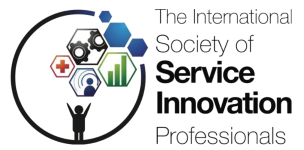Martin Fleming View Martin Fleming’s profile 
Fellow, The Productivity Institute, University of Manchester and Chief Revenue Scientist, Varicent
ISSIP congratulates ISSIP member Martin Fleming and team for recognition by the Biden Council of Economic Advisors in their latest report to the President (Link below). Specifically in Chapter 7: An Economic Framework for Understanding Artificial Intelligence, they credit Martin and his team for clarifying their understanding of when AI can be economically deployed.
Martin shared on LinkedIn: The Biden Council of Economic Advisors (CEA) recognized our work as improving their understanding of when AI would be economically viable for adoption. Whether AI will complement the skills of workers or replace workers is dependent on the vary substantial cost of AI and the accuracy of the results produced and benefits delivered. Cost-benefit analysis is a critical decision criteria.
The CEA writes that workers and the tasks they “perform are very likely to change as a result of AI.” All jobs will change. However, technological feasibility alone will not determine the impact on workers. The economics of AI matters. The CEA concludes that currently “neither large-scale complementarity to nor substitution from AI is taking place.”
Our work also finds that the very substantial investment required for most AI solutions suggests that technology-sector-third-party providers will develop and deploy most solutions with millions of business organizations as buyers and users. This is where competition enters the picture. The CEA finds that “the addition of AI can have positive or negative effects on competition.” Competition can increase with the easier entry of new firms or lower switching costs. Conversely, deep AI-provider integration can reduce competition by making switching more difficult and locking customers.
Work that we have in the very early stages will help to address the concern the CEA raised about the inherent challenge in “[o]bserving AI adoption and measuring its effect.” “[B]ecause firms that adopt AI do so in many ways” our work examines how business processes – e.g. supply chain management, talent development, product development – integrates AI and advanced digital technology while reorganizing worker tasks. Viewed by industry and enterprise size, we will observe diffusion and adoption on an ongoing basis providing a platform to measure the impact on workers and labor markers.

